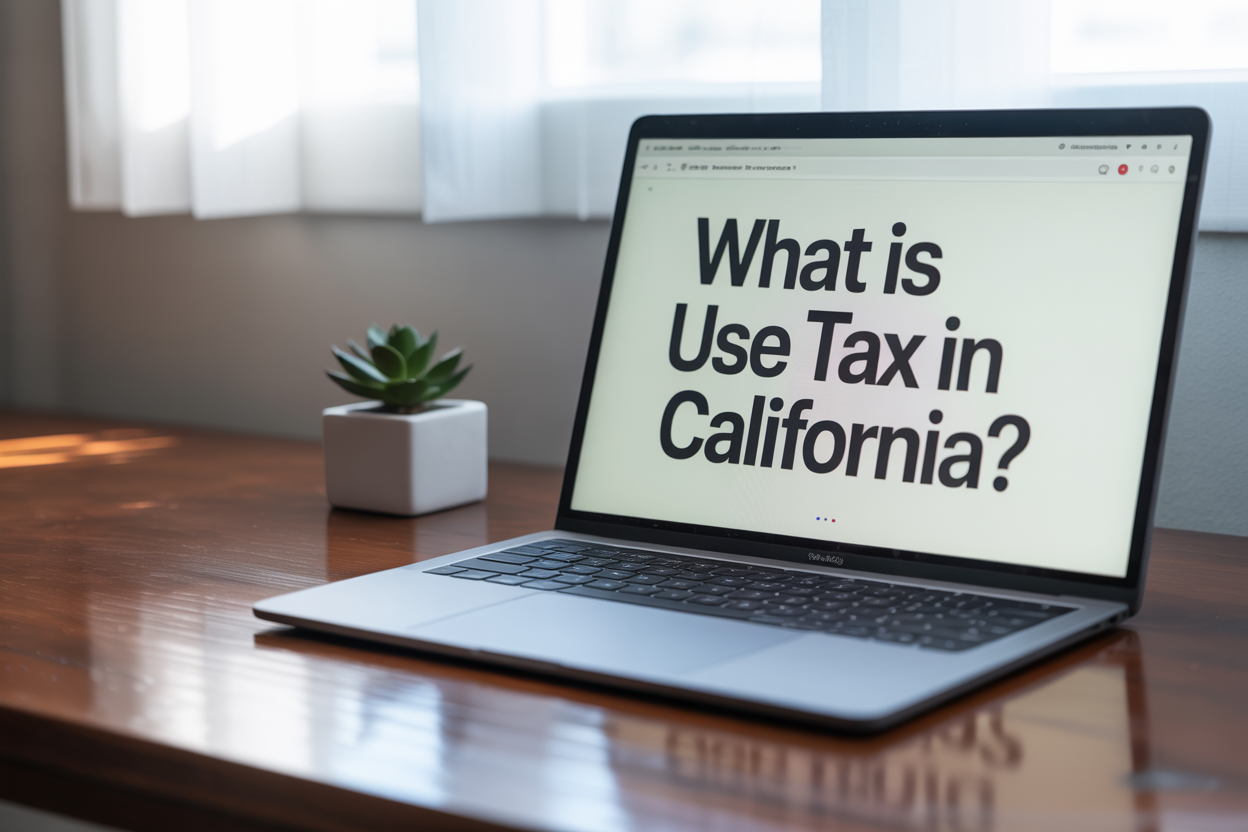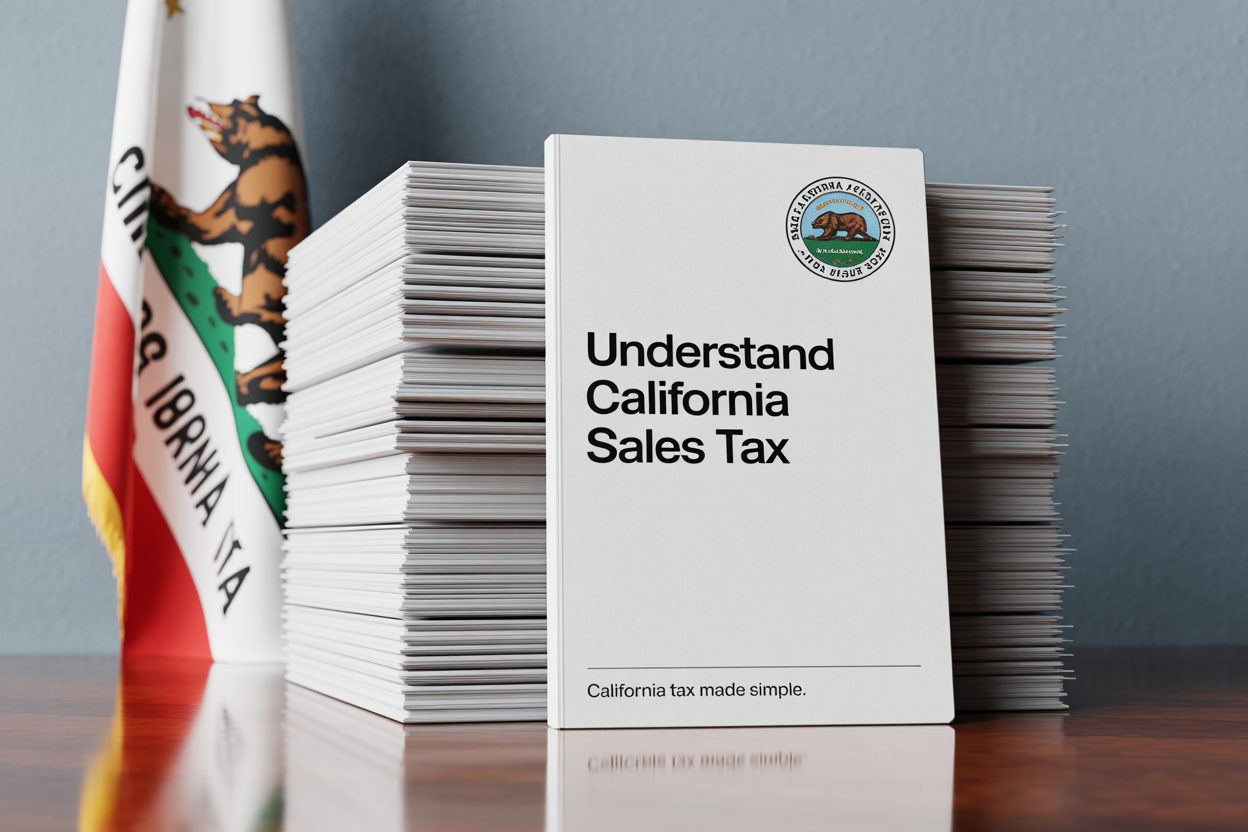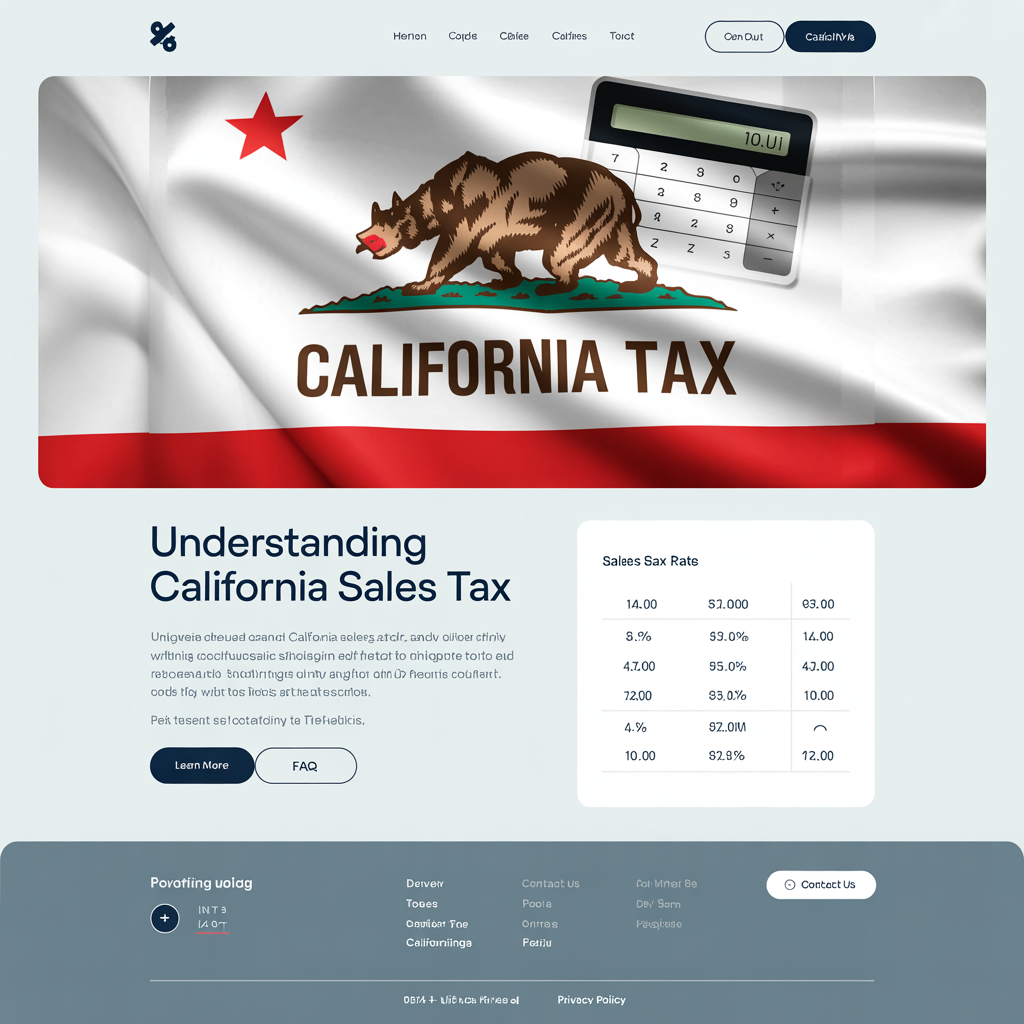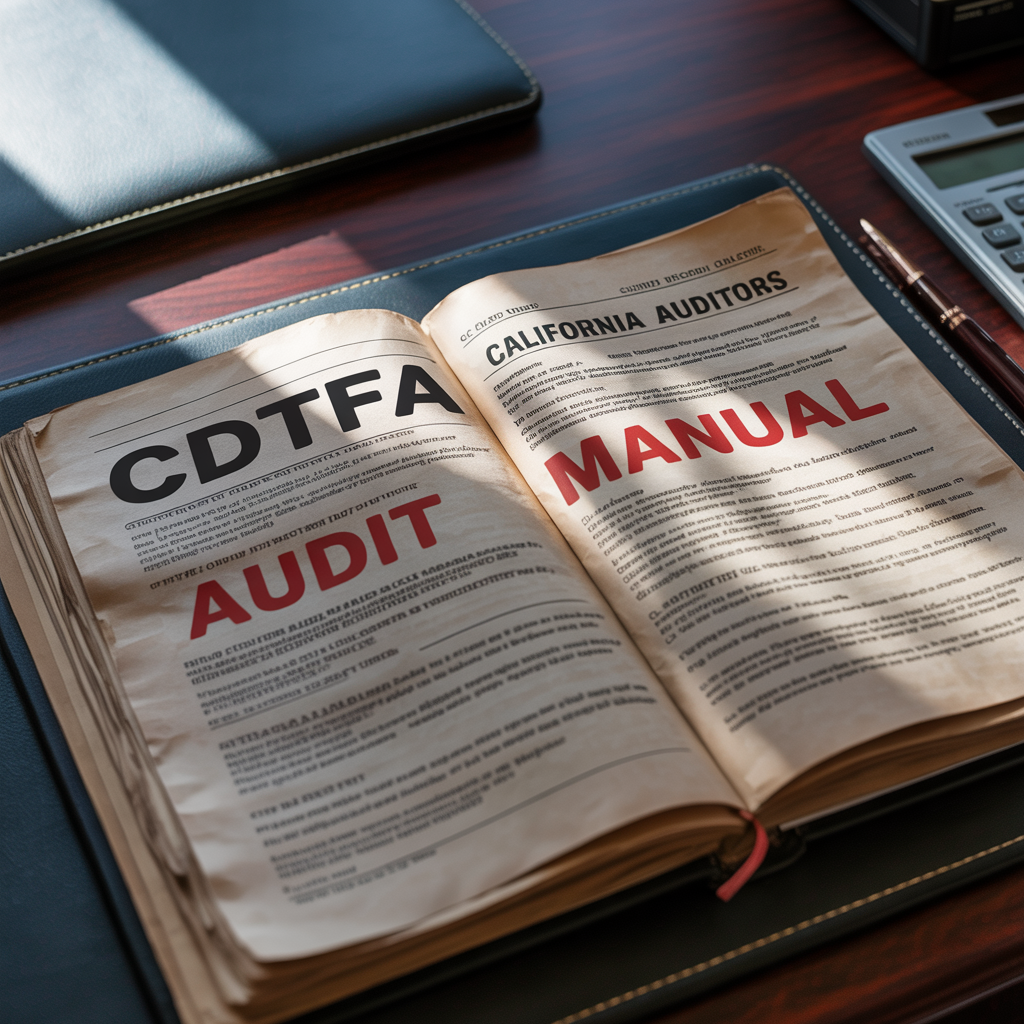CDTFA Audit Red Flags for Online Sellers
Why E-commerce Businesses in California Are Being Targeted

If you’re selling online through Shopify, Etsy, Amazon, or your own website, and shipping products into or from California, you’re on the CDTFA’s radar — whether you realize it or not.
The California Department of Tax and Fee Administration (CDTFA) has dramatically increased audits of online sellers, especially after the Supreme Court’s Wayfair decision. And if your sales tax compliance isn’t airtight, they’ll come knocking.
In this article, we’ll break down what triggers a CDTFA sales tax audit, what records the CDTFA scrutinizes, and how to protect your business. Already concerned about your audit risk? Learn more about our sales tax audit defense for online sellers.
Why Online Sellers Are Getting Audited in California
Since Wayfair, California enforces economic nexus laws — meaning even out-of-state sellers can owe sales tax if they meet revenue or inventory thresholds in the state.
Meanwhile, CDTFA enforcement teams:
- Pull 1099-K data from Stripe, PayPal, and Amazon
- Run automated sales tax data comparisons
- Focus on mid-size sellers who don't have legal teams backing them
CDTFA Red Flags That Trigger Audits
1. Mismatched Sales Data
If your:
- 1099-K totals
- Sales tax filings
- And income tax returns don’t all align, you’re at risk. The CDTFA compares these sources and assumes unreported income if discrepancies exist.
If you’ve received notices from both the CDTFA and the Franchise Tax Board (FTB), you may also be facing California FTB audit triggers that expand the scope of your case.
2. Improper Marketplace Handling
Even though Amazon or Etsy may collect sales tax, you’re still responsible for reporting those sales properly.
CDTFA may audit you if:
- You report marketplace sales incorrectly
- You don’t file when required
- You omit platform earnings on income tax filings
3. No Seller’s Permit or Late Registration
If you crossed the $500,000 threshold in California sales and haven’t registered for a Seller’s Permit — you're exposed.
They also audit:
- Amazon FBA sellers with inventory stored in California
- Sellers with physical nexus (e.g., employees, pop-up shops)
4. Missing Local Tax Allocation
CDTFA wants sales tax broken down by district — not lumped statewide.
Red flags:
- Filing flat statewide totals
- Skipping Schedule B district allocation
- Not tracking destination-based delivery sales
5. Frequent Returns or Refunds
Heavy refund activity can trigger audits because it suggests:
- Income manipulation
- Inconsistent reporting
- Possible suppression of taxable sales
6. Selling Digital Products Without Clarification
Online courses, software, memberships, and e-books have complex taxability rules. Misclassifying taxable digital goods as nontaxable can lead to back-tax assessments.
What Happens in a CDTFA Online Seller Audit?
The CDTFA will demand:
- Platform sales reports (Amazon, Shopify, PayPal, Stripe, etc.)
- 1099-Ks
- Income tax returns
- Sales tax returns (CA)
- Bank statements
When responding to a CDTFA audit letter, it’s critical to be prepared with reconciled records and supporting documentation. Poor or incomplete responses often escalate the audit process.
Penalties for Noncompliant Sellers
If audited, you could face:
- Tax assessments for 3+ years
- 10–25% penalties
- 8–10% interest
- Liens or bank levies
- Cross-referral to Franchise Tax Board collections or even EDD
In some cases, working with a CPA can help with negotiating a CDTFA audit balance before penalties spiral out of control. If necessary, we can also assist in challenging CDTFA audit findings through appeals or settlements.
If you’re facing FTB issues on top of a CDTFA review, we can coordinate a multi-agency defense. (Link to: /ftb-tax-problems-california)
How to Stay Off the Audit Radar
✅ Get a California Seller’s Permit if required
✅ Track and report sales by district
✅ Reconcile 1099-Ks to your filings
✅ Separate platform sales from direct site sales
✅ File regularly, even if sales are zero
✅ Keep supporting records for all platforms
Why Work With Boulanger CPA
We help online sellers:
- Prepare for and survive CDTFA audits
- Fix improper registration and filing gaps
- Reconcile multi-channel sales tax data
- Avoid penalties through clean-up filings or voluntary disclosure
- Defend against aggressive collection actions
Whether you're Shopify-based, Amazon FBA, or hybrid — we’ve done this before.
Schedule Your Free Strategy Call
Worried about an audit? Already under review?
We’re based in Orange County and represent e-commerce clients across California. Let’s protect your business and fight for a fair outcome.
👉 Schedule your free audit strategy call and explore more in Defend What’s Yours — your guide to protecting your online business.
Frequently Asked Questions
Why are online sellers targeted by CDTFA audits?
Online sellers often have complex sales tax obligations, including marketplace sales, interstate transactions, and use tax issues, making them frequent CDTFA audit targets.
What are common red flags for CDTFA audits?
Red flags include mismatched reported sales, failing to collect sales tax on California transactions, missing resale certificates, and unreported marketplace sales.
Does using platforms like Amazon or Etsy trigger audits?
Yes. CDTFA often checks compliance for sellers on large platforms. Errors in marketplace facilitator reporting or failing to remit sales tax may lead to audits.
How far back can CDTFA audit online sellers?
Most audits cover three years, but if fraud or significant underreporting is suspected, CDTFA can audit further back.
What records should online sellers keep?
Maintain detailed sales records by platform, transaction-level data, customer invoices, bank statements, and copies of resale certificates to defend against adjustments.
Can CDTFA audit out-of-state sellers?
Yes. If you sell into California and meet economic nexus thresholds, CDTFA can audit your sales tax compliance even if your business is located elsewhere.
Should online sellers hire a CPA for audit defense?
Yes. Professional representation ensures your records are accurate, your rights are protected, and CDTFA assessments are minimized.
📣 About the Author
Marc Boulanger, CPA is the founder of Boulanger CPA and Consulting PC, a boutique tax resolution firm based in Orange County, California and trusted by high-income individuals and business owners across Southern California.
He is the author of Defend What’s Yours: A California Taxpayer’s Guide to Beating the IRS and FTB at Their Own Game, available now on Amazon. The book offers a step-by-step plan for resolving IRS and FTB tax debt without losing your business, your home, or your peace of mind.
With over a decade of experience resolving high-stakes IRS and State tax matters, Marc brings strategic insight to complex cases involving wage garnishments, bank levies, unfiled returns, and six-figure tax debts. He is known for helping clients reduce or eliminate tax liabilities through expertly negotiated settlements and compliance plans.
Marc is a Certified Public Accountant licensed in California and Oklahoma and holds the designation of Certified Tax Representation Consultant. He is a member of the American Society of Tax Problem Solvers (ASTPS) — the national organization founded by the educators and practitioners who have trained thousands of CPAs, EAs, and tax attorneys in IRS representation strategy.
Every case is handled with discretion, proven methodology, and direct CPA-led representation — not call center scripts.
📍 Learn more at www.orangecounty.cpa or call (657) 218-5700.










